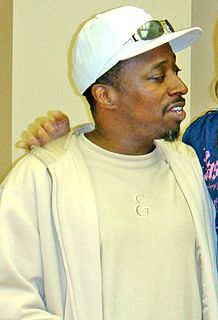A Quote by Manning Marable
The NYPD was ubiquitous. They were always around Malcolm X. Whenever Malcolm spoke, there would be one or two dozen cops all over the place.
Related Quotes
Over a period of about year-and-a-half, Malcolm X and [Alex] Haley agreed to work with each other. They met usually after a long business day that Malcolm put in very tired. He would get there at about - either at Haley's apartment or they would meet at then Idyllwild Airport at a hotel, and Malcolm would be debriefed by Haley. He would talk, Haley would take notes.
Elements within Malcolm's X own entourage, some of them were very angry with some of the changes that had occurred with Malcolm. One source of anger, curiously enough, was that - was the tension between MMI and OAAU, that the MMI, the Muslim Mosque Incorporated, these were women and men who had left the Nation of Islam out of loyalty to Malcolm, but then Malcolm continued to evolve rapidly.
Malcolm's X objective was actually to reingratiate himself within the Nation of Islam, that because he had emerged by the early 1960s as a very prominent figure outside of the N.O.I., there were critics within the organization that were saying to the patriarch of the N.O.I., the Honorable Elijah Mohammad, that Malcolm planned to take over the organization, which was not true.
When 'Malcolm in the Middle' was over, I was looking for a drama more than a comedy...but if it was a comedy that came up, it would have to be as well-written as 'Malcolm' was, and it would have to be a different kind of character than I played on that show. That's harder to come by. In drama, there were more opportunities, more options for me, and when I read ('Breaking Bad'), it was just, 'Good night, Nurse! I'm going after this sucker!'
There were internal critics, sharp critics, who were very opposed to [Malcolm X], and who were very - some of them were members of Elijah Mohammad's family, such as Herbert Mohammad, Raymond Shareef, who was the head of the Fruit of Islam, the brother-in-law of - the son-in-law of Elijah Mohammad. They isolated Malcolm X and kept him out of the newspaper of the organization Mohammad Speaks for over a year, which is kind of curious.
I have asked James Shabazz, I've asked other people who are members of the OAAU, Herman Ferguson and others, what led to that disastrous decision [that the guards didn't carry weapons]? James Shabazz said to me with a shrug, you just didn't know Malcolm. Malcolm was adamant, and that whatever Malcolm wanted, that's what we just did.
[Malcolm Fraser] went straight from Melbourne Grammar to Oxford. And he would have been a very lonely person, and I think he probably met a lot of black students there who were also probably lonely. I think he formed friendships with them, which established his judgement about the question of colour. That’s my theory. I don’t know whether it’s right or not, but that’s what I always respected about Malcolm. He was absolutely, totally impeccable on the question of race and colour.




























